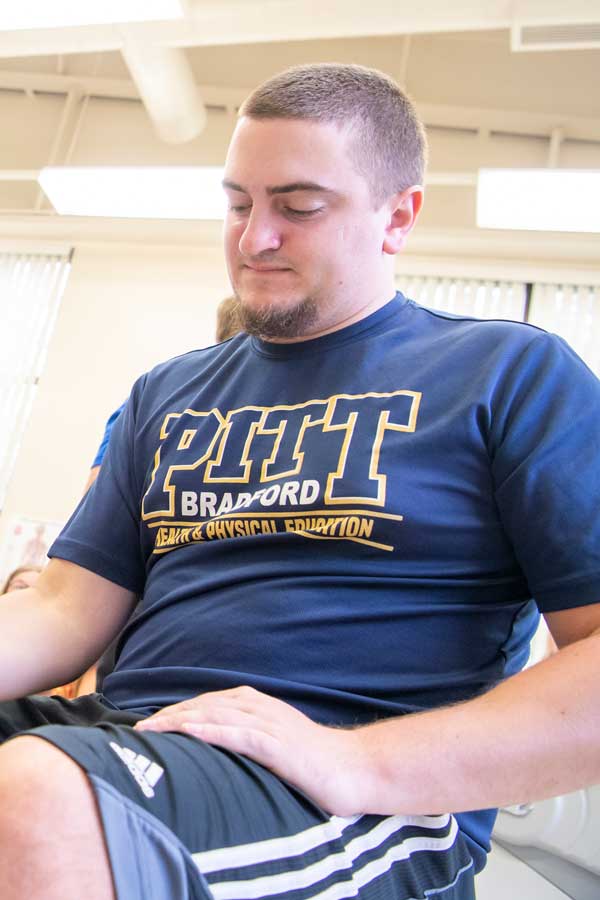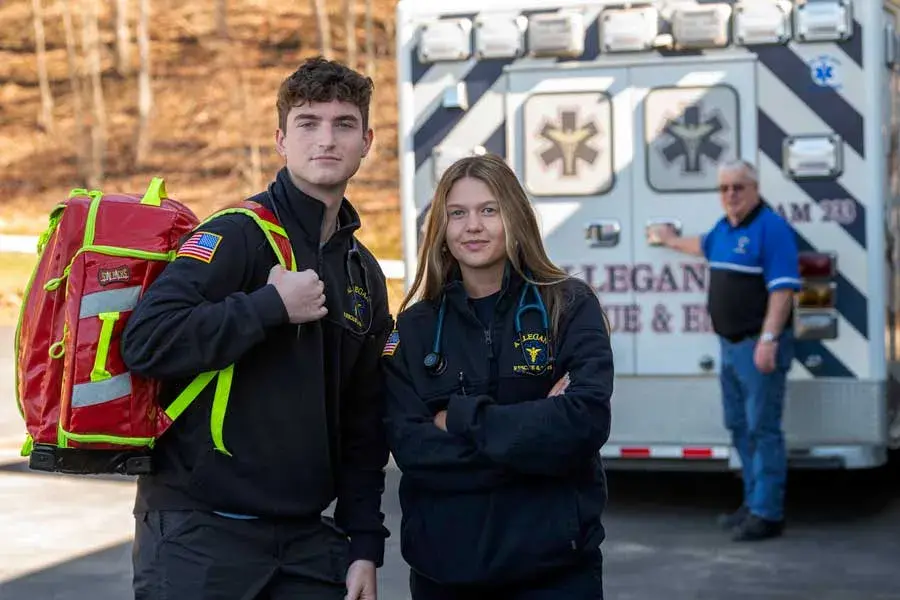
Pre-Physical Therapy
You can help people move more freely and reduce their pain.
Why study pre-physical therapy at Pitt-Bradford?
Physical therapists examine patients and develop a plan of care that promotes movement, reduces pain, restores function and prevents disability.
This field is expected to grow by 36% through 2024, much faster than the average for other occupations, according to the Bureau of Labor Statistics. Also, U.S. News & World Report ranked physical therapists 20th on the list of 100 Best Jobs in 2019.
What will I learn?
You’ll major in exercise science or biology and get a strong foundation in biology, chemistry and physics along with core exercise science courses.
What can I do with a degree in pre-physical therapy?
You’ll take the prerequisites required and be well prepared to get into a graduate program in physical therapy.
Employers:
- Hospitals
- Rehabilitation clinics
- Colleges and universities
- Sports teams
- Home health care services
Graduate schools:
- University of Pittsburgh
- Slippery Rock University
- Chatham University
- Gannon University
- Clarkson University
- Youngstown State University
Featured Courses
-
BIOL 0212
Human Anatomy And Physiology 1A study of the gross and microscopic anatomy, physiology, and homeostatic mechanisms of the human body, stressing the relationship of structure to function. This semester covers cell types and tissues and the cellular processes of osmosis, diffusion, and active and passive transport; the integumentary system; the skeletal system and joints and bone metabolism; the muscular system and mechanisms of muscular contraction; the nervous system, mechanism of nerve impulse conduction, and the special and somatic senses. Three hours of lecture per week. -
CHEM 0101
General Chemistry 1The basic principles of chemistry: atomic and molecular structure, stoichiometry, and the general properties of gases, liquids, and solids. The lab emphasizes the basic techniques in quantitative study of chemical processes.
Program-Related News

What’s new on campus this year
New programs in health care and athletics.

Emergency medicine helps communities and students
Area emergency medical services eager for new major.

Graduates head to police academy, graduate school
New grads include first environmental engineering technology graduate.